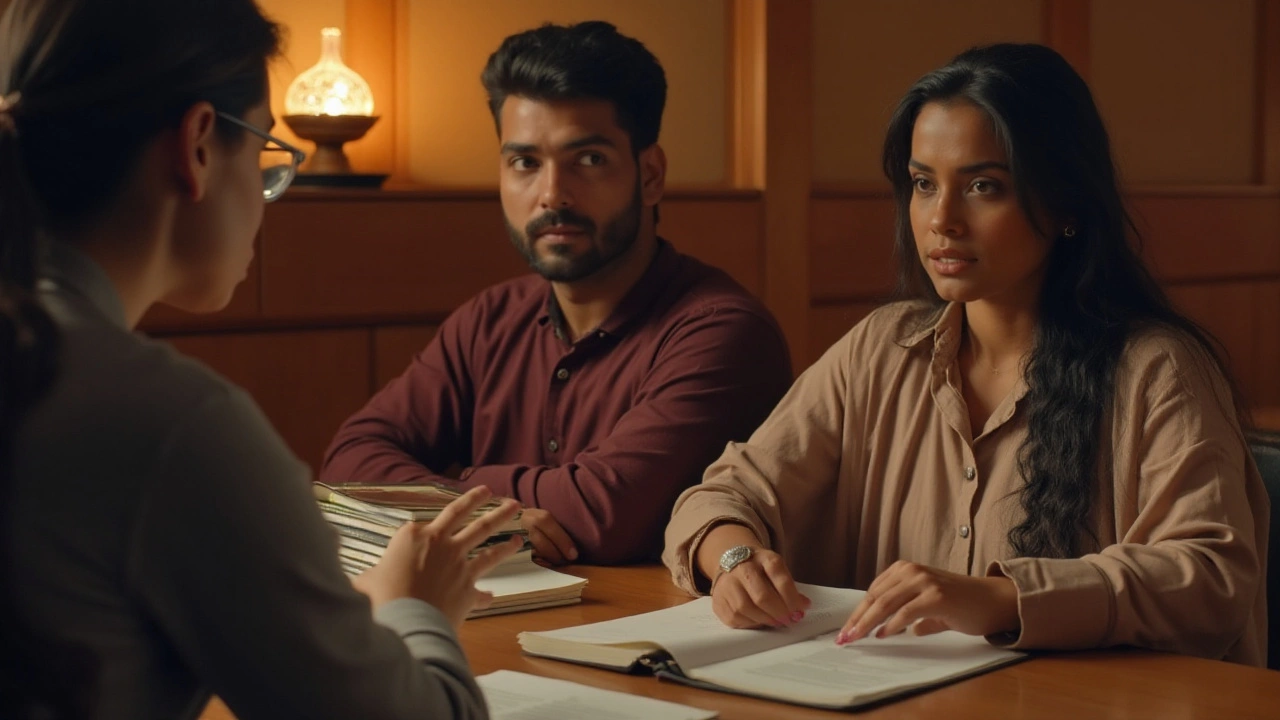Divorce Settlements: What They Are and How to Get a Fair Deal
If you’re thinking about ending a marriage, the biggest question is often how to split assets, decide child custody, and set up alimony. That’s what a divorce settlement does – it’s a written agreement that covers everything the court would otherwise decide for you.
Why bother with a settlement? It saves time, cuts costs, and lets both sides keep some control. Courts still get involved if you can’t agree, but a solid settlement can keep things calm and private.
Key Steps in a Divorce Settlement
1. Gather Your Documents. Pull together bank statements, property papers, loan details, and any proof of income. The more you have, the easier it is to see what’s on the table.
2. List What You Want. Write down your priorities – maybe the family home, child education, or a specific amount of alimony. Knowing your must‑haves helps during negotiation.
3. Talk to Your Spouse. Even a short, honest conversation can reveal where you both agree. Keep emotions in check and focus on facts.
4. Consider Mediation. A neutral mediator can guide you through the details without the courtroom drama. It’s cheaper than a lawyer‑led battle and often results in a win‑win.
5. Draft the Agreement. Once you’ve ironed out the numbers, have a lawyer write the settlement. The document must include asset division, debt responsibility, child custody, visitation, and alimony terms.
6. File with the Court. Submit the settlement to the family court. If the judge finds it fair, it becomes a legally binding order.
Tips to Get a Fair Settlement
Know the Law. In India, the Hindu Marriage Act, Muslim Personal Law, and other personal laws dictate how assets and alimony are treated. A quick check on which law applies to you prevents surprises.
Be Realistic. Aim for a split that reflects both parties’ contributions and future earning potential. Over‑reaching can stall talks and push you back to court.
Don’t Hide Anything. Undisclosed accounts or hidden savings will explode later if discovered. Full transparency builds trust and speeds up the process.
Use Professional Help. Even if you want a DIY approach, a short consult with a family lawyer can spot red flags. It’s a small price for avoiding costly mistakes later.
Plan for the Future. Think beyond the immediate split. Consider how the settlement will affect taxes, retirement savings, and your child’s needs over the next few years.
Remember, a divorce settlement isn’t about winning – it’s about creating a practical roadmap for both parties to move on. By staying organized, communicating clearly, and getting the right advice, you can reach an agreement that feels fair and saves you from a lengthy court fight.
If you’re ready to start, pull those financial documents together today and set up a meeting with a mediator or lawyer. The sooner you begin, the quicker you’ll get back to life after divorce.

Understanding Divorce Settlements: Wife's Entitlement in India
Navigating divorce settlements in India can be complex, especially when it comes to understanding a wife's entitlement. This article delves into the factors that influence alimony, property division, and child support in Indian divorce cases. It aims to offer clarity on the rights and claims a wife can make following a separation or divorce. By exploring various legal frameworks and case precedents, it provides practical advice for those going through this challenging process.